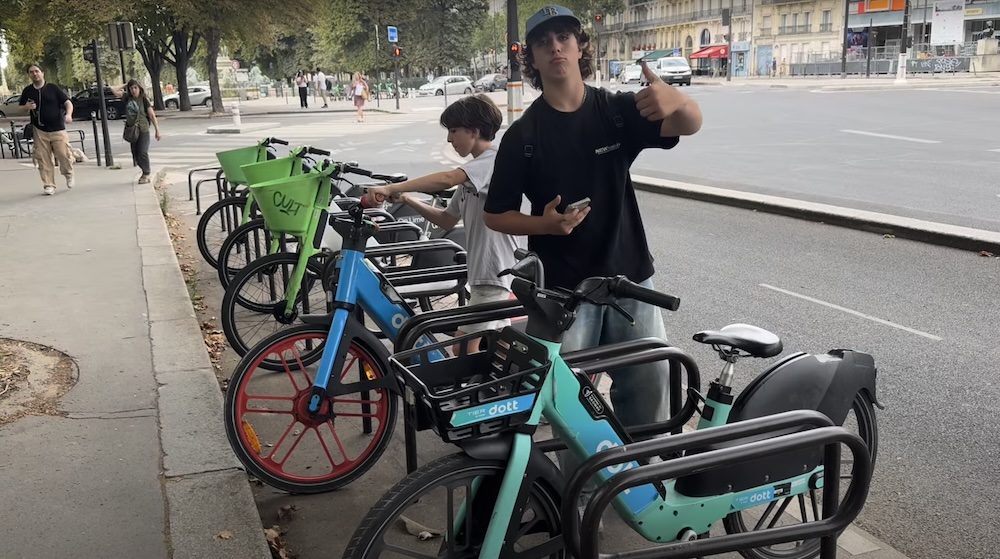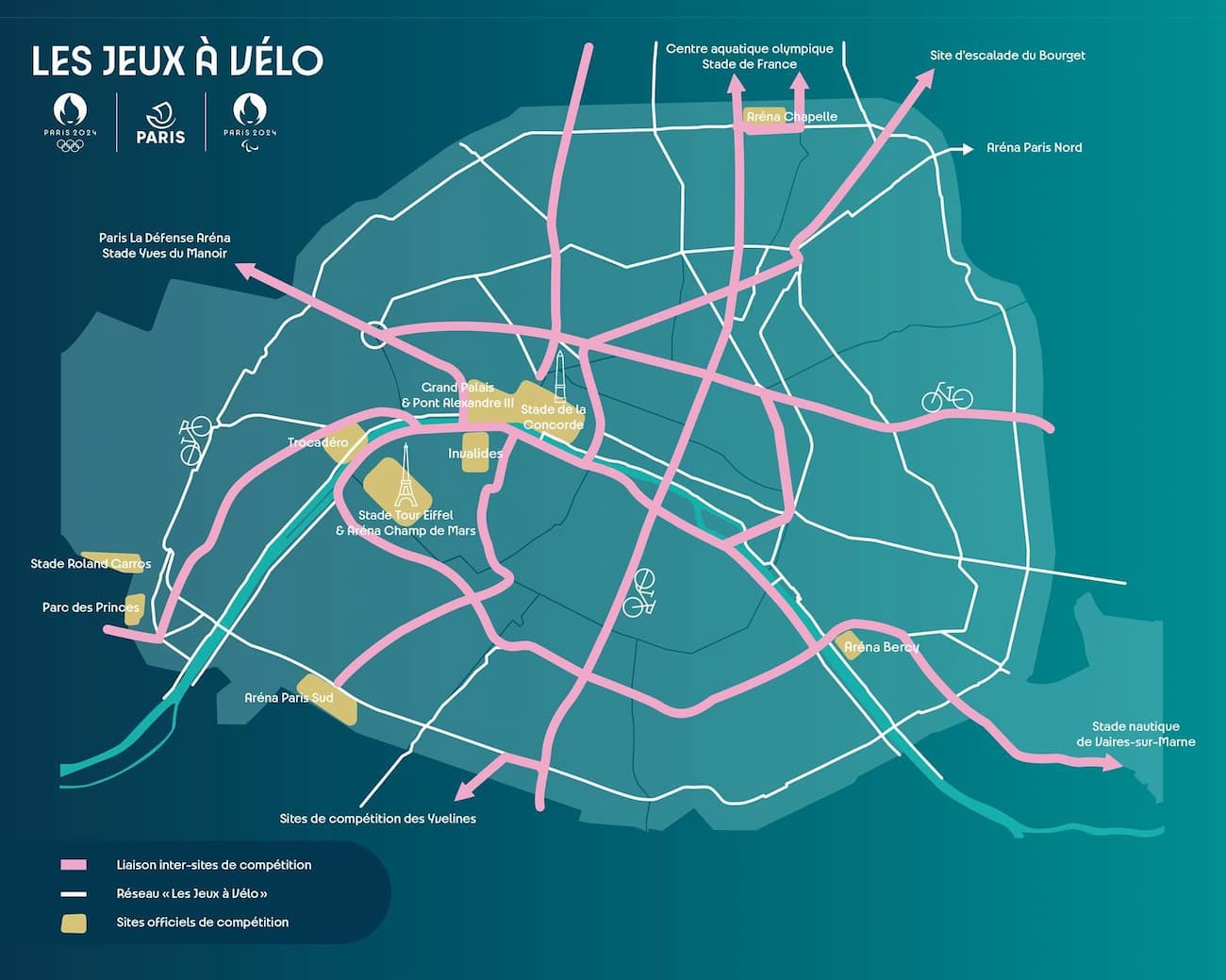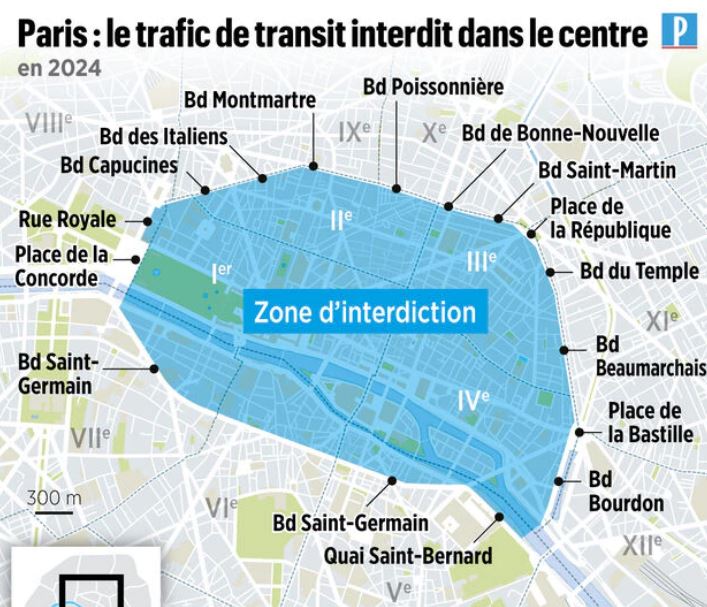
Liberté. égalité. fraternité. mobilité?
The Paris 2024 Olympics just concluded and whatever you think of actual games (they were great!) the city itself deserves a lot of credit for giving its visitors a first class experience. Here at Electrek, we’ll focus on the transportation aspect…
As a background, I’ve lived in Paris for two years and have returned as often as I can. In fact, my writing career started here and I make a point of bringing my kids here whenever I can.
In my younger days, Paris was beautiful, but you couldn’t help but notice the general pollution on all but the windiest of days. From the time you descended into the haze of the city in the plane and in all of the otherwise beautiful cityscapes, there was always the not-just-proverbial dark cloud hanging over the city. Does pollution help the wonderful tastes and smells of French cuisine? No, it does not.
The pollution wasn’t just of the particulate matter. Loud, two-stroke mopeds and scooters careening around the city, noisy busses, and, of course, those rattling diesel cars and vans were always within earshot and, just like the haze, creating an unwanted audio backdrop to the street musicians playing the accordion or just some nice cafe French chatter.
The new, clean, quiet Paris city center
That’s why this Olympics has been jarring – in a good way. France has replaced most of its buses with quiet, and I mean almost zero-noise, electric vehicles. That includes those loud, double-decker tourist buses that plow through the small streets in the cafe sections of the city.
Paris is also phasing out those noisy, polluting two-stroke mopeds/scooters. Even better, a variety of micromobility options like Segway/Dott e-bikes and Lime have cropped up to supplement the city’s long-standing Velib bike and e-bike stationary rental offering. Although Paris recently removed its electric kick scooter share programs, plenty of people have seen the advantages of scooter transit, and you can buy a perfectly good electric scooter for €300 at most electronics and sporting goods stores and, of course, online. Vespa scooter-sharing programs are also popping up.
In addition, Paris, like many cities, including New York, has introduced and/or reinforced bike lanes that are safe from automobile incursions. That makes micromobility safer and, therefore, more accessible to many more people. Paris denotes the easy-to-follow bike paths for Olympic visitors that can easily take them between venues:

Paris has also installed 10,000 new bike racks to give riders a secure place to lock their bikes outside of Olympic venues, and the plan is to redistribute those racks around Paris after the Olympics are over.
As far as cars and trucks, there are still plenty of combustion vehicles on the streets, but Renault Zoeys, Hyundai IONIQs, and Teslas are everywhere. These quiet and non-polluting vehicles are made possible by the thousands of charging spots added recently throughout the city.
In June, Micah wrote that Paris was reducing its air pollution by 40% ahead of the games by (spoiler) moving cars out of the city center. Paris also tripled its SUV parking fees which don’t take effect until next month but will have had an effect on people’s buying habits. Paris is also paying residents up to $4,000 to replace their old gas-guzzling car with a bike.

One commenter on that post noted:
The transformation of Paris is remarkable. Last year I cycled through the city, from 30km south to 15km north, anticipating problems. But the development of cycle lanes and cycle paths meant that it was a breeze. I was astonished by the numbers and diversity of bikes and riders. It was thrilling and made me optimistic about what can be achieved. Making the city bike and pedestrian friendly has happened independent of the Olympics and is a result of a clear and determined policy.
Another wrote:
Just got back from a trip to France. Entire family LOVED biking in Paris. Incredible bike lanes and accessibility (that I can only imagine will continue to expand). And it’s fun as seemingly everyone else bikes too!
I recall in prior trips (two and three decades ago) I went underground (the metro) to move about. So much nicer to take in the views and get a better chance to know the city by biking.
We used Lime (nice bikes, plenty of options always seemingly near by even four of us wanting bikes at the same time. Some times when you went to park the app would say you can’t park here, but just keep trying and finally the app will let you take a photo to show that you are parking in a legit bike parking spot (which we were).
There also is a local bike share company that has TONS of bikes – it’s named Vélib. All the locals seemed to use them. They should probably market better to tourists, but Lime worked well (but was also more expensive to ride than the local company). Nice to have options.
Paris almost had Drone Air Taxis available for the Olympics but alas…
The result: Getting around Paris is easy, fun, quiet and clean
Hats off to Mayor Anne Hidalgo, who set many of these programs in motion. All of these different initiatives have combined to make Paris a better place to visit, even during the Olympics, which has totally taken out many other cities with less impressive infrastructure.
Sitting in a cafe is a much better experience, getting around, even if by walking, is much easier. The city is somehow just a lot nicer. And it isn’t just me, many of the people here at the Olympics have noticed.
I would be remiss if I didn’t include the Metros and RER which were running really well, perhaps with the exception of the RER B which was about 600 degrees and packed on the way too and from the Stade De France.
But that was also something to note here: There are redundancies/options. Because of all of the different modes of transport, we decided to take a bike back home rather than the crowded RER from the closing ceremonies. And not just because we could stay longer than the RER was open, it was also because biking back through the city is fun, great exercise, and you get to see a lot of cool neighborhoods and canal sides (and we worked off some of the booze we ingested). Plenty of Ubers/taxis were also available and late-night buses are always an option if bikes weren’t available.
As an American, I really hope the Los Angeles Olympic Committee is taking notes here. With almost no infrastructure currently and four short years before the 2028 games, I shudder to think of what it will be like to get from Beach Volleyball to the Coliseum or any of the hotels scattered throughout the city. Los Angeles: It is time to copy Paris!
Read More: A city with little transit, LA wants to host a ‘no-car’ 2028 Olympic games: here’s how
FTC: We use income earning auto affiliate links. More.





Comments